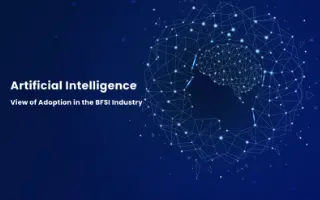Can banks follow the FANG model of digitization? FANGS vs BANKS

Open banking can be considered as another term for digitization of banking sector. Open banking, in simple terms, means delegating one’s bank account access to third parties, authorizing them to perform operations on their behalf. Since the data exchange happens through secured Application Programming Interfaces (APIs), it is ensured that customer data remains safe and protected with the third party. While open banking has triggered the wave of transformation in finance domain, there still remains the “human element” in the way banks operate today. Talking about digitization, while we have the concept of open banking on one side, we have digital platforms such as Facebook, Amazon, Netflix and Google (also known as FANGs), which are most talked about. The key reason of their popularity is the customer experience they offer to the world, and this remains one of the biggest challenges the FinTech firms are facing today. They have been trying hard to live up to the expectations of their customers in terms of providing the experience that the FANGs are providing, but haven’t reached there yet. So, what is stopping them from going fully digital? What is it that’s compelling them to retain the human factor? The need for conventional banking along with the open banking is due to the difference in kind of services finance sector offers as compared to FANGs. Customers form their opinion and have long relationship with their banks forged on trust and values; there is high level of trust that is involved as compared to other digital-native industries. Another basic need of customers is frictionless experience, however friction can mean different things to different customers here. For instance, for some, more steps involved in making a transaction is annoying, while for others, friction could mean not able to understand a process – loan processing, opening an account etc. Therefore, automation or digitization cannot necessarily remove all the friction from customer’s life. Even if chatbots can resolve the customer issues in minutes, banking sector would still need human touch to make the entire process easy and seamless. Let us look at some of the areas where human touch remains relevant even in current digital era.
- Financial advice: There are customers who do not understand the processes and products well, and need assistance from an expert to help them make their best decisions. These interactions are based on the trust they have in their advisors and hence a bot or algorithm cannot do justice in this scenario.
- Customer onboarding – While most of the customer onboarding process is moving towards digitization, there are still specific areas in the process that requires personal touch as a machine cannot assess a person’s history and offer personalized products.
- Complex processes – Processes such as loans require intricate understanding of customer’s behavior, his needs and history, and therefore human interaction is something they need for better understanding.
So, how do banks plan to transform? Certainly, banks cannot follow the FANG way of digitization considering the level of trust and personalization required by their customer base, but they can look at how best to use digital tools and technologies to enhance the human touch in the services they offer to their customers. How? Leveraging the power of data to offer financial advice: By using the advanced analytics on the customer’s data and their history, experts can understand the needs of their customers better and provide richer, more tailored personalized advice. Using digital tools and latest technology, banking personnel can eliminate the constraints of operating hours and location, and can serve their customers anytime, anywhere. Through Blockchain, or digital ledger, banks can establish a decentralized channel for payments, facilitating faster processing at lowered cost and with higher security. Blockchain also eliminates the risks involved with the third party intermediaries and enables transactions to be processed anytime, anywhere. The banking ecosystem has evolved and will continue to do so, but human touch will remain an essential part of the digitized banks unless the day comes when the bots become intelligent enough to replace the humans in the process. So, FANG model and digitized bank model can never be the same, considering the fact that banks offer a differentiated experience that is focused on customer’s trust and values. However, firms can offer a variety of experiences by leveraging the omni-channel capabilities – a benefit that even FANGs would envy.
To know more about how SLK helps digitize banks, reach out to us and we will be happy to discuss with you. SLK believes in ensuring continuous growth of customers by inspiring and empowering them to be the best in delivering solutions to meet global IT challenges. To further this mission, SLK is equipped with high quality Banking & Financial Services Consulting Group supported by an experienced Business and IT research team. The team leverages industry experts, expert articles, analyst firms like Gartner, Forrester, IDC, Aite, Celent among others to bring you the industry insights, trends, best practices and proposes strategies for innovation and transformation.
Authored by Admin




